Six of the best - Title turnarounds
Sebastian Vettel may have moved to within touching distance of Lewis Hamilton in the 2015 championship fight courtesy of his victory in Hungary, but can he really crash Mercedes' party? It's by no means the biggest deficit an eventual champion has faced at the half-way stage of a season - even Vettel himself has come back from a worse position, as we reveal in our look back at six of the most dramatic championship reversals in Formula One racing history...
Kimi Raikkonen, 2007
18 points (26 percent) behind Lewis Hamilton at mid-season
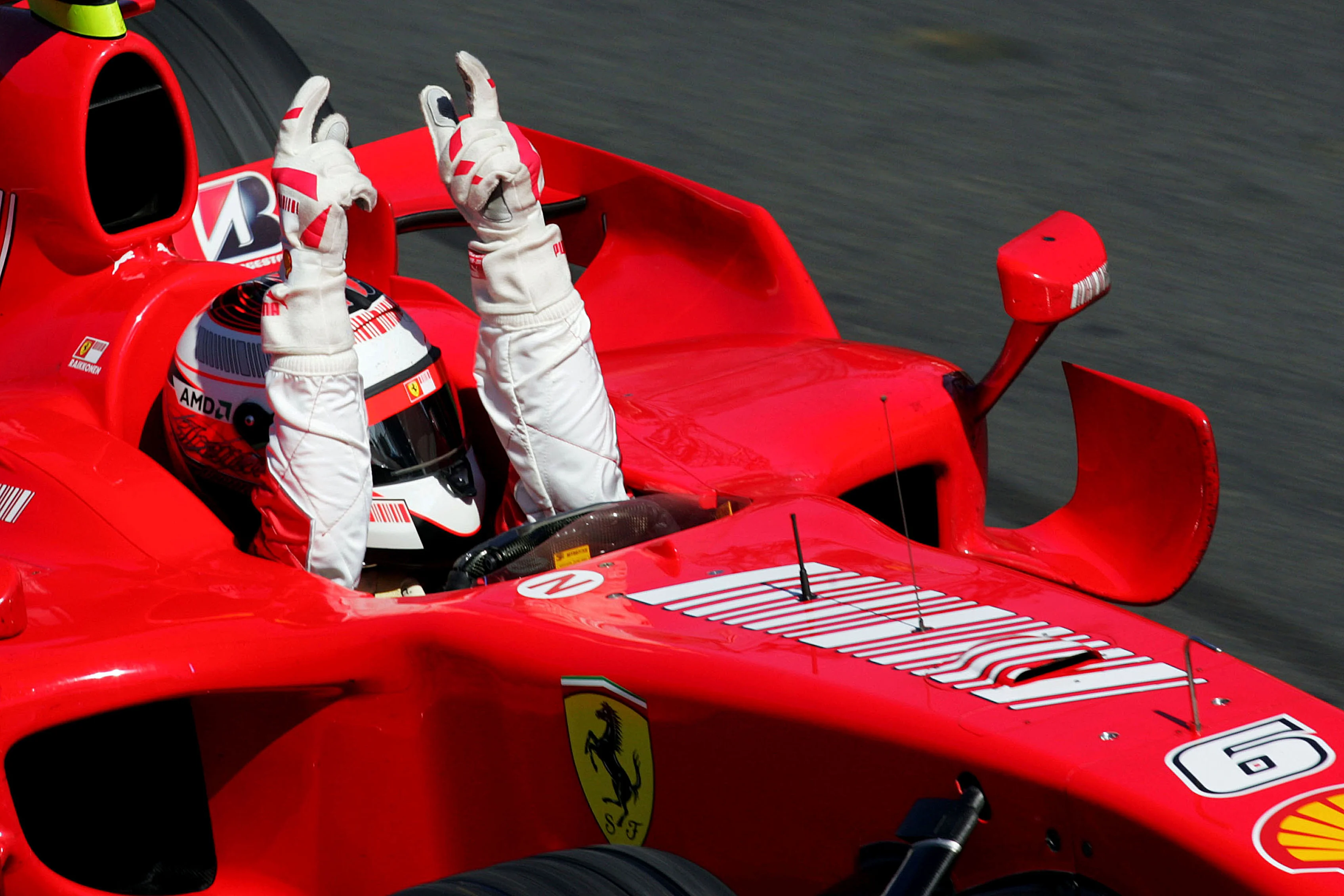
The Iceman snatched the title from under the noses of McLaren duo Lewis Hamilton and Fernando Alonso in 2007, but he had to come from a long way back. By the halfway stage he trailed Hamilton by 18 points (under the 10-8-6-5-4-3-2-1 scoring system), with his task looking all the more difficult given the Briton had finished on the podium in each of the opening nine races. By Hungary, two races after the mid-way point, the gap had increased to 20, and Raikkonen's chances were looking increasingly slim. "I know it's difficult to win six races in a row, but we have to try," was his message at the time. "We can't give up."
But as relations broke down in the McLaren camp, Raikkonen began to gain the ascendancy. Two wins and three podiums in five races put him within touching distance of the McLaren duo, who each had their own sources of regret - Alonso in Japan, and Hamilton in China, where he famously exited the race in the pit lane gravel, while within tantalising reach of the championship. A three-way final-race showdown loomed, with Raikkonen seven points off Hamilton and three points back from Alonso. Only a victory would suffice, and even then the title would not be in his own hands.
What transpired has been written into F1 legend. Hamilton was slowed by early gearbox issues, and could only recover to seventh. Alonso was third, meaning he tied on points with his team mate. But Raikkonen, having been behind all season, was ahead when it mattered most - team mate Felipe Massa graciously moving over to give the Finn victory, 10 points, and with it the title, just one point ahead of Hamilton and Alonso.
Sebastian Vettel, 2012
44 points (29 percent) behind Fernando Alonso at mid-season
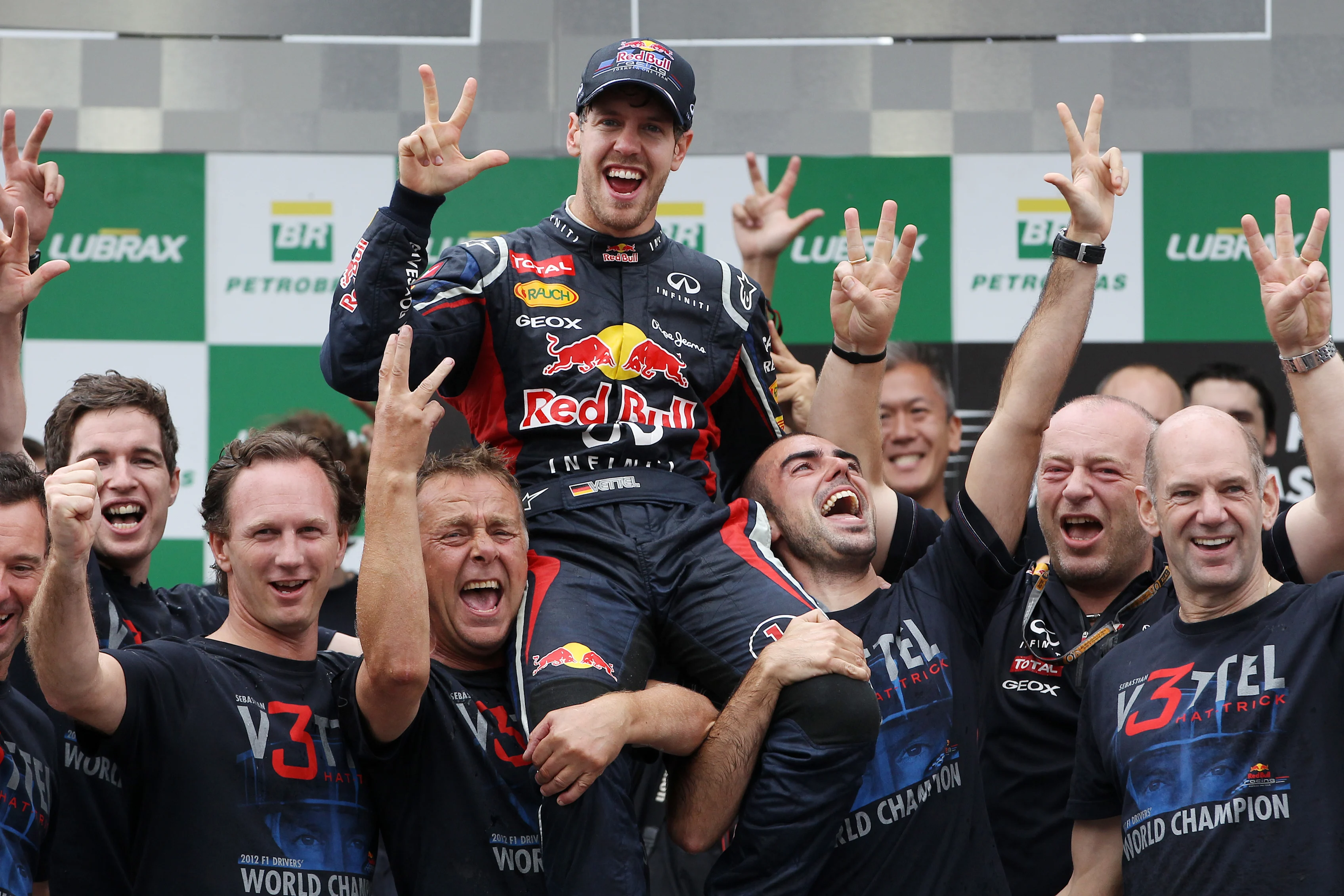
The history books show 2010-13 being Vettel's era, but in truth his run of four straight world championships was far from straightforward - and 2012 was when it all almost unravelled. A record seven different winners from the opening seven Grands Prix of the year made for a remarkably close title race early on, but by mid-distance Vettel had fallen away, trailing Ferrari's Fernando Alonso by 44 points (greater than the margin he trails Hamilton by this year).
What came next was stunning. Four straight victories in Singapore, Japan, Korea and India lifted the German into a solid points lead with three of the 20 races remaining, while podiums in Abu Dhabi and the USA gave him a 13-point lead over the Spaniard heading into the Brazilian showdown.
Vettel's margin of error was large, but the title was still on a knife edge - particularly when contact left him facing the wrong way as the field plunged downhill at Turn 4. Somehow he emerged intact, but he was dead last and had suffered damage. With Alonso soon up to third - and therefore ahead of Vettel in the points forecast - it seemed the Red Bull driver's chances were over.
But Vettel was not to be defeated: remarkably he had clawed his way back to sixth in just eight laps, and maintained position even as rain added a new twist to an already incident-packed race. The title was his, by a margin of just 3 points. With it also came a place in the history books: Vettel was the youngest ever triple world champion.
Nelson Piquet, 1981
11 points (30 percent) behind Carlos Reutemann at mid-season
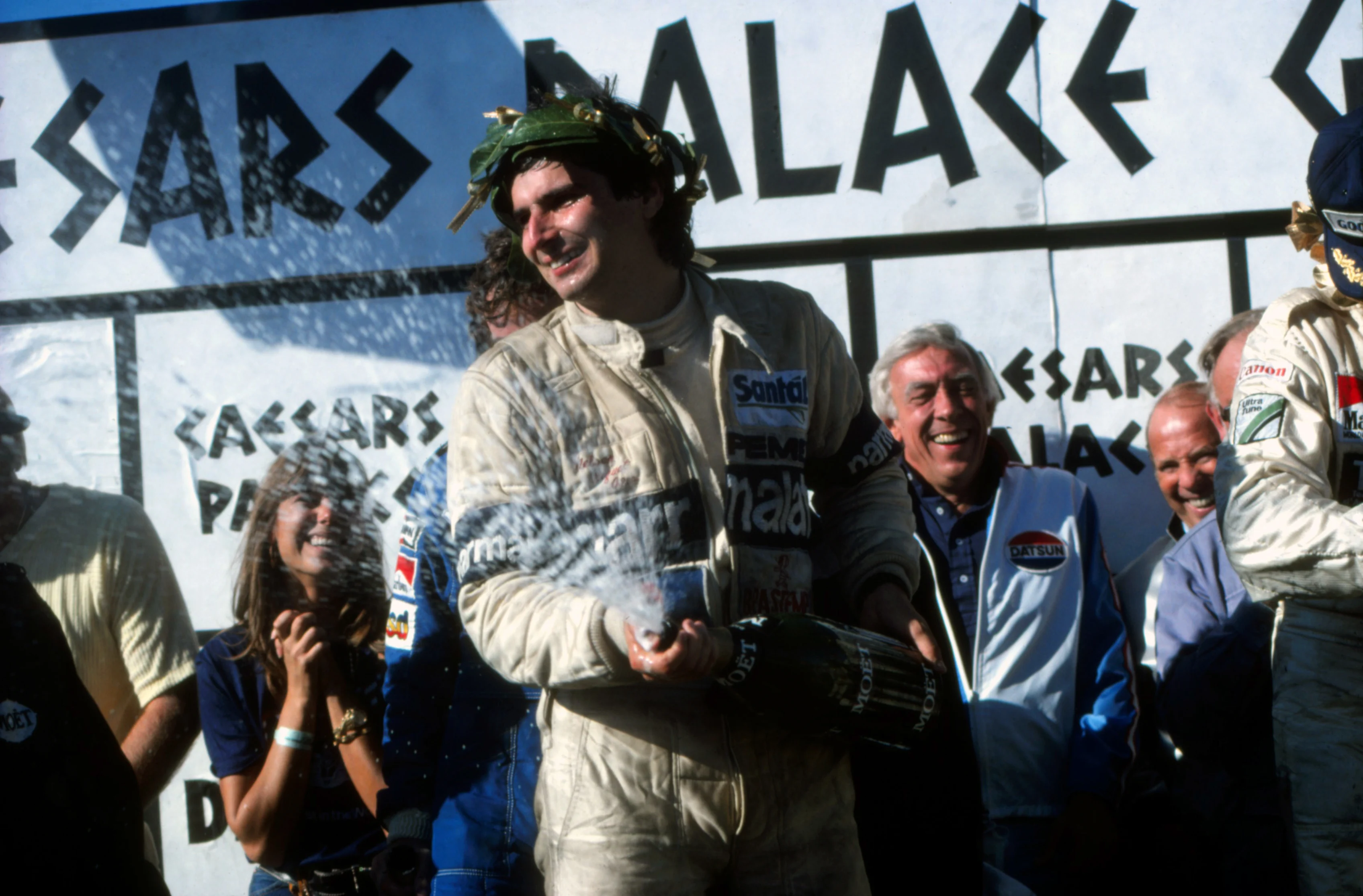
Boasting seven different winners, and five drivers all within one victory of being champion, 1981 was one of the most dramatic seasons in history (quite aside from the politics that dominated in the background). It also delivered the first of Nelson Piquet's three F1 crowns, but the breakthrough came about the hard way.
It was fellow South American Carlos Reutemann who had the momentum over the first eight of the 15 races, winning twice and claiming three podiums to lead Piquet by 11 points at the halfway stage - a large margin for the era. Piquet's charge wasn't immediate - in fact he lost ground in round 9 when he crashed and injured his leg at Silverstone. Reutemann came home second, extending his lead to 17 points. It was the biggest margin he would enjoy.
Piquet returned to form, winning once and taking two podiums to close rapidly on Reutemann, for whom old uncertainties and mistakes had started to creep in. By the penultimate round, Piquet was just one point behind. A car park outside the Caesar's Palace hotel in Las Vegas would host the denouement. Reutemann qualified on pole, but come raceday he slipped back dramatically with gearbox trouble. By lap 17 Piquet had picked him off for seventh, and while that wasn't enough in itself, the Brazilian climbed two more places by the flag to seal the title by just a solitary point.
Niki Lauda, 1984
11.5 points (32 percent) behind Alain Prost at mid-season
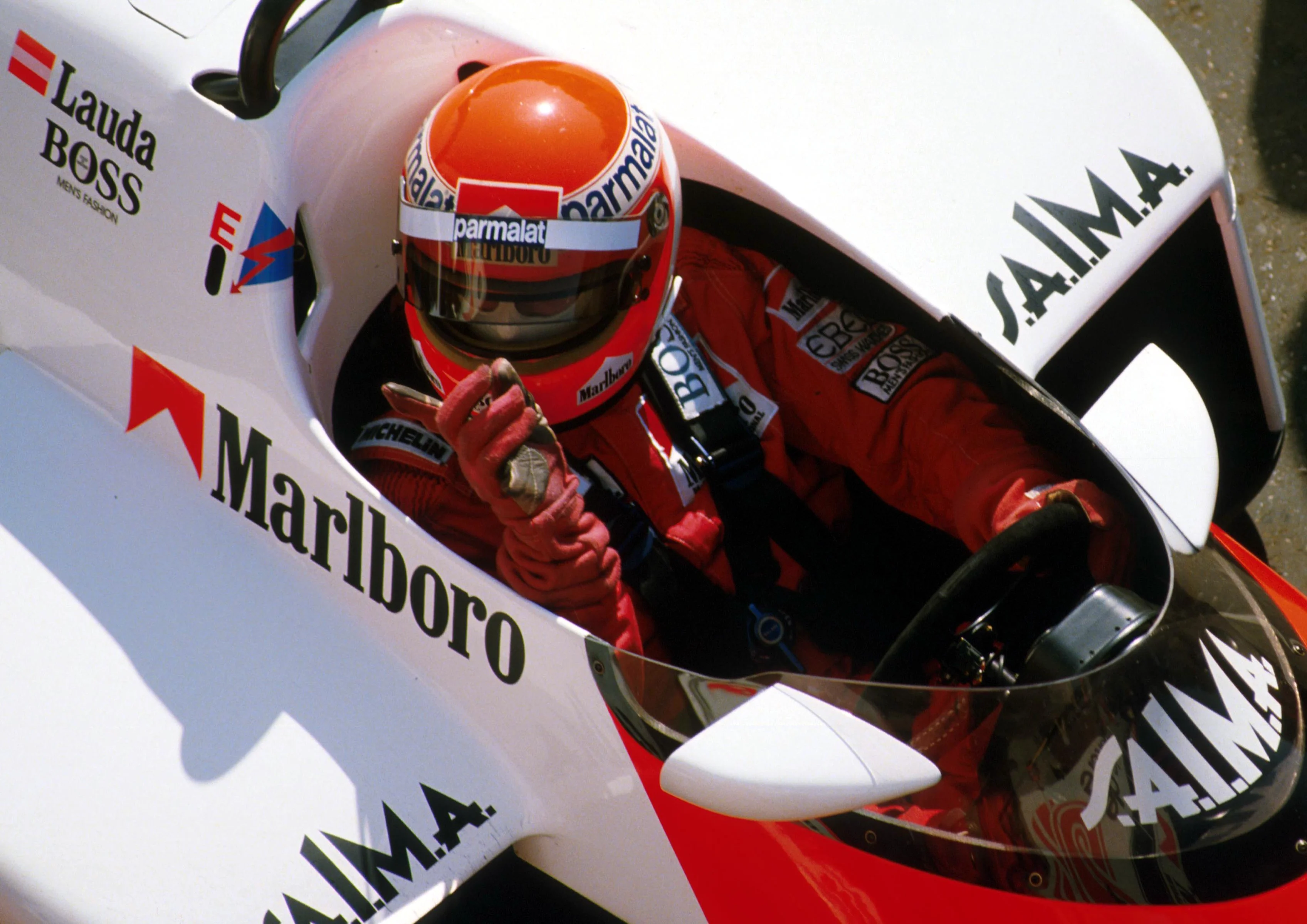
It became clear early on that McLaren were destined for silverware in 1984. Which of Alain Prost or Niki Lauda would claim the honours, however, was far less certain. Prost took a record-equalling seven wins over the 16-race calendar (Lauda claimed five), and also led by 11.5 points at the halfway mark. In the end though it was the Austrian who triumphed, and by just half a point - the closest margin in history.
Rounds 10 and 12 in Great Britain and Austria respectively provided the biggest swings, with Lauda winning and Prost failing to score on both occasions - leaving the Austrian 18 points to the good. Lauda was now in front, but the advantage swung between the pair in each of the next three races, meaning Lauda carried a 3.5 point advantage into the final race.
Prost duly qualified on the front row, while Lauda was mired down in 11th, his title hopes suddenly in jeopardy. By lap nine Prost was leading and all set for the title, but Lauda was fighting back. By half distance he had moved into third, which is where he remained until - with around 20 laps to run - Nigel Mansell spun twice while in second. Lauda took the position; Prost was victorious, but it was Lauda who was champion. It remains one of just two seasons when the champion never claimed pole.
James Hunt, 1976
38 points (50 percent) behind Lauda at mid-season
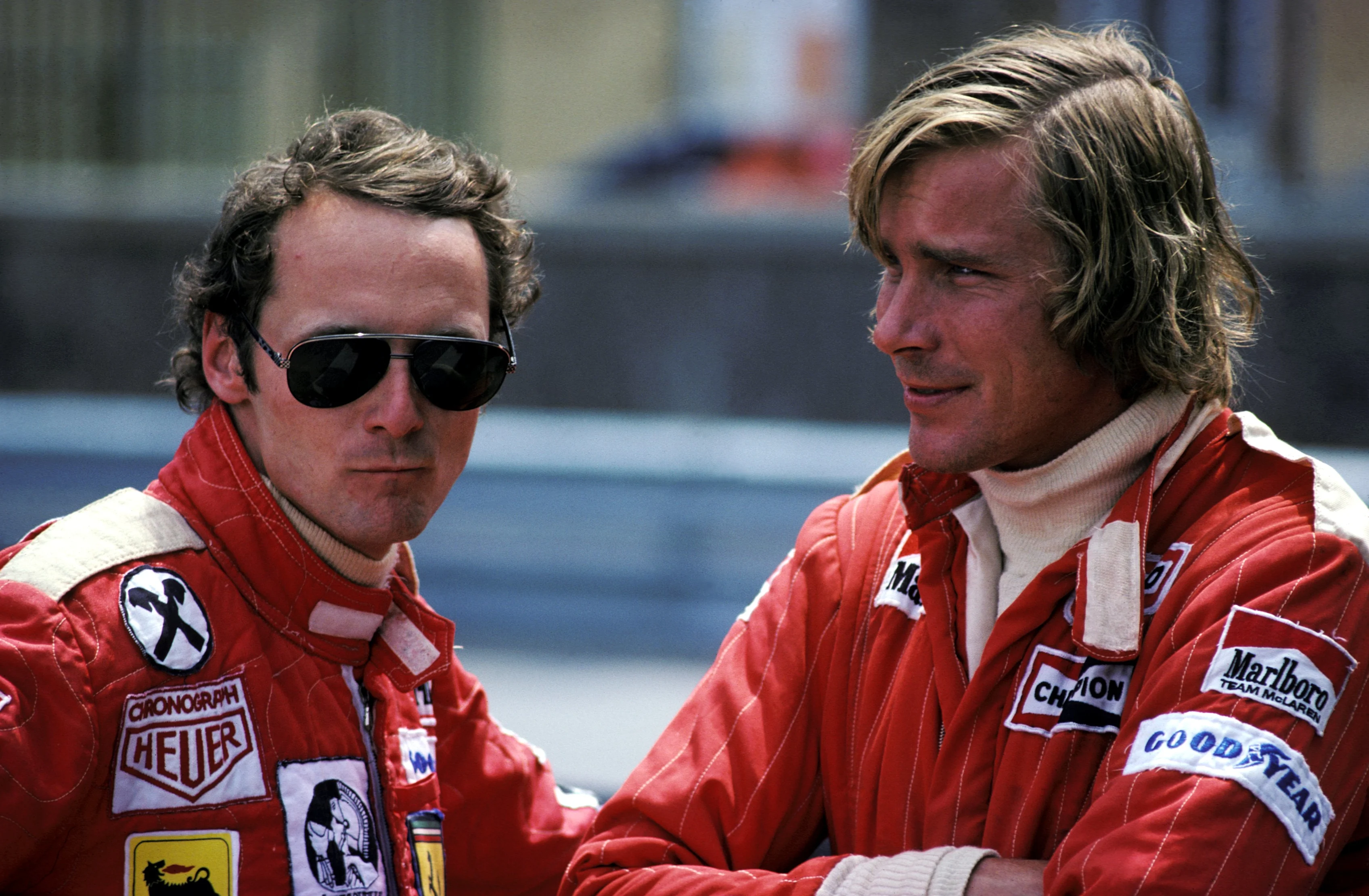
Eight years earlier, it was Lauda's turn to be on the losing side of a title turnaround, although his breath-taking bravery and determination would shape his legacy in ways title glory never could. James Hunt meanwhile would come from behind to claim the title in the final round, his rivalry - and comradeship - with Lauda becoming the stuff of legend.
Already the reigning world champion, and now in his third season with Ferrari, Lauda was the early favourite and made good on such billing by winning four of the opening eight races. By the halfway stage he looked nailed on for the title, having collected 52 points, exactly double that of Hunt, who had won twice but otherwise struggled for results.
The German Grand Prix, however, would change everything. Lauda crashed heavily and was badly burned. Hospitalised and with smoke in his lungs, he was read his last rites. His recovery was remarkable in itself; even more staggering was the fact he was competing again within six weeks, finishing fourth in Italy. Hunt had won twice in Lauda's absence, and did so again in the penultimate two races, meaning he headed into the Japan decider still three points behind. The weather was atrocious, and Lauda withdrew. The chase was on, and in a thrilling, rain-hit and chaotic race, Hunt fought through to take the third place he needed. The title was his.
John Surtees, 1964
20 points (67 percent) behind Jim Clark at mid-season
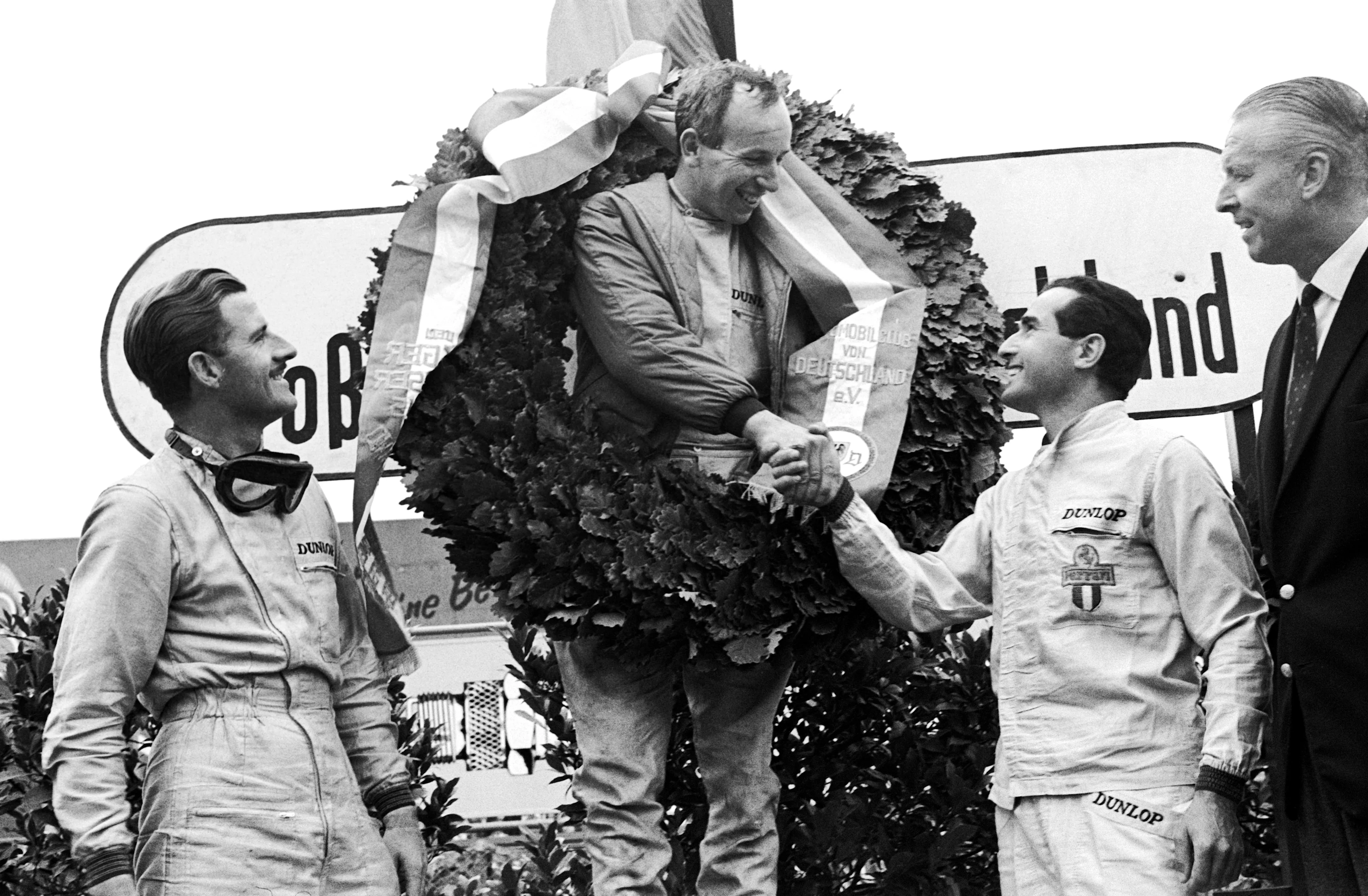
The 1964 championship has gone down in legend, with John Surtees becoming the first - and still only - man to win world championships on two and four wheels. But it also remains, in percentage terms at least, the biggest comeback in F1 history.
Five races in to the 10-race calendar, and it was Lotus's Jim Clark who looked odds on for the title. Three wins and one fourth had given him 30 points (under a 9-6-4-3-2-1 system), with Graham Hill second on 26. Three men were on 11, while one point behind them, effectively in seventh, was Surtees.
Remarkably reliability issues meant Clark failed to score in any of the next four races, meaning it was Hill who had the lead going into the final round in Mexico. Even so the Briton hadn't been prolific, picking up one victory and one second in the four Grands Prix that spanned Germany and the USA. Surtees meanwhile had won twice and claimed an additional second, allowing him to jump Clark and move into second. While the dropped scores rule added a layer of complication, nine points fundamentally covered the top three - Hill was on 39, Surtees on 34, and Clark locked on 30, but still with more wins than any other driver. Mexico would be a three-way showdown.
Clark took off into the lead at the start, but Hill and Surtees both plummeted, affected by goggle issues and an engine misfire respectively. Both began to make progress, and Hill was soon third, which would have secured him the title. A collision allowed Surtees to slip through, but even so Clark was destined for the title - until, with seven laps to run, his engine began to leak oil. On the last lap it finally seized, and Surtees suddenly had a shot. Ferrari team mate Lorenzo Bandini obliged by moving aside, allowing Surtees to claim second and with it - by one solitary point - the title.
Next Up
Related Articles
/Vowles%20Bahrain%20testing.webp) ‘Mood has lifted’ at Williams in Bahrain – Vowles
‘Mood has lifted’ at Williams in Bahrain – Vowles Doohan excited for ‘fresh start’ as Haas reserve
Doohan excited for ‘fresh start’ as Haas reserve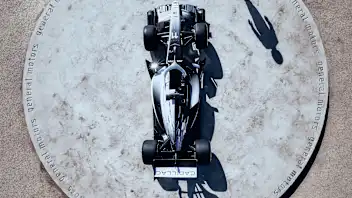 QuizTHIS WEEK IN F1: 10 quiz questions on the latest Formula 1 news
QuizTHIS WEEK IN F1: 10 quiz questions on the latest Formula 1 news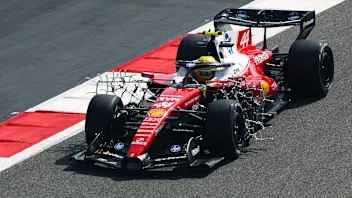 Cars hit the track on Day 1 of first Bahrain test
Cars hit the track on Day 1 of first Bahrain test Watch as the F1 TV crew unpack Day 1 of first Bahrain test
Watch as the F1 TV crew unpack Day 1 of first Bahrain test/16x9%20single%20image%20-%202026-02-12T145251.291.webp) AS IT HAPPENED: Day 2 of pre-season testing in Bahrain
AS IT HAPPENED: Day 2 of pre-season testing in Bahrain